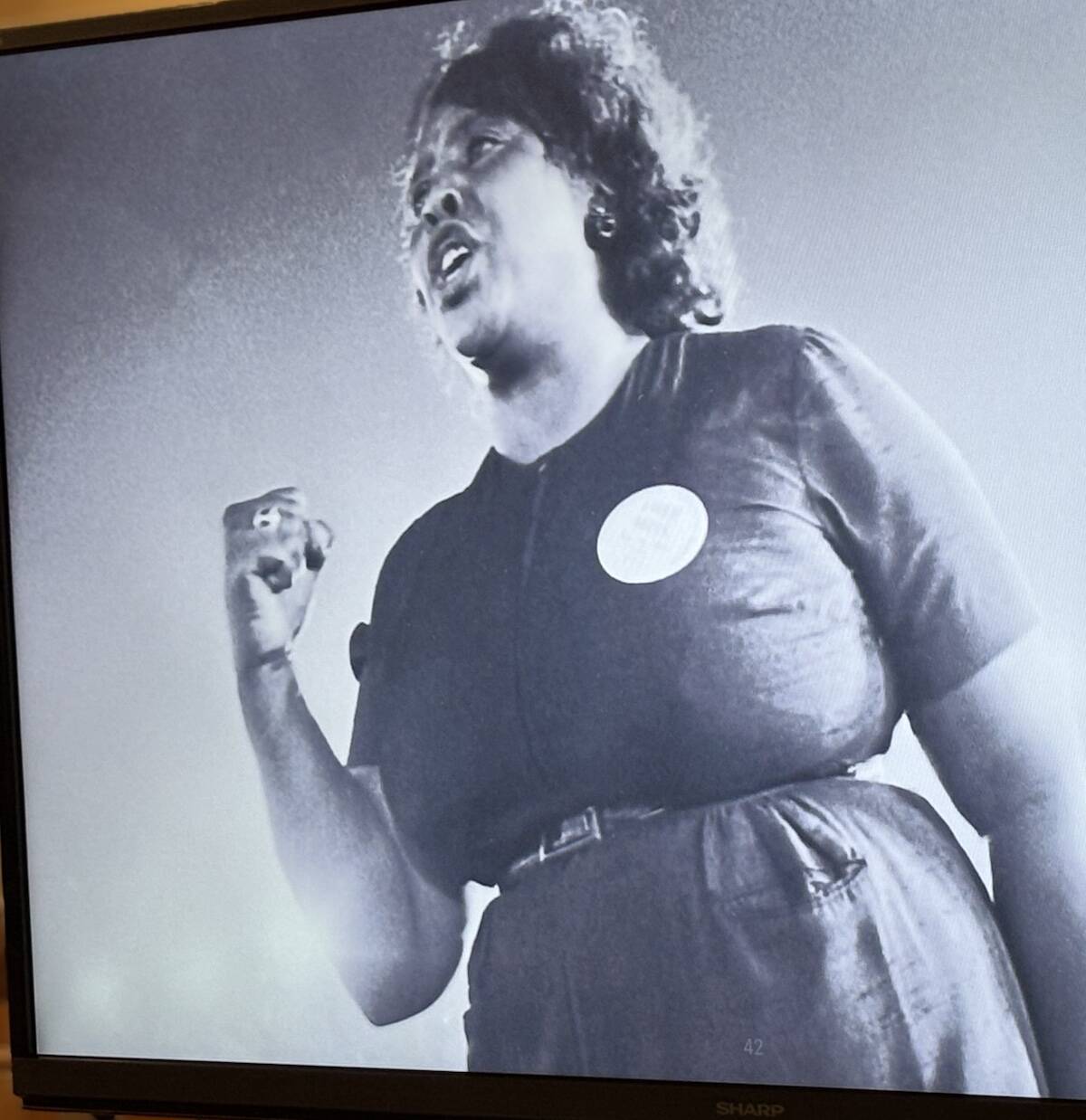A crowd packed the church at St. Augustine’s in-the-Woods for its 19th annual homage to Dr. Martin Luther King Jr. on Jan. 20. The theme: “Blessed are the Peacemakers: A celebration of nonviolent witnesses for peace and justice.”
Hosted by St. Augustine’s Episcopal Peace Fellowship, the two-hour tribute included video, sing-along music, speakers and audience members narrating key moments in civil rights history, with an emphasis on the women who made a difference during those times.
“On this day we gather to honor, learn and be inspired by women in the civil rights movement,” Rev. Jennifer Cleveland said, recalling the fierce headwinds faced by civil rights proponents. “In the 1960s African Americans faced a political, economic, social racist Jim Crow regime imposed by violence, authoritarian rule, social degradation and education that distorted history. But these women kept their eyes on the prize.”
Ash Bystrom, one of the narrators, invited the audience to sing a song inspired by “Letter To A Young Activist During Troubled Times,” written by Clarissa Pinkola Estés, Ph.D in 2016.
“The song speaks to the moment and fear in one’s heart,” Bystrom said. “The song is, ‘We were made for these troubled times.’”
Bystrom and Melisa Doss guided the audience by singing first and inviting the audience to follow.
The people stood and sang, looking at one another with genuine affection, and opening their arms: “Don’t lose heart, we were made for these times. Show your soul — it shines like gold in these dark times.”
The experience left tears in the eyes and a good lump of emotion in the throat.
Among the notable woman honored were Ida B. Wells, a founding member of the NAACP; Pauli Murray, the first woman to graduate from the Howard University law school; Rosa Parks, whose act of civil disobedience was seen as a key moment in the civil rights movement; Jo Ann Robinson, an English professor at Alabama State University whose influence helped in creating the Montgomery Bus Boycott; Diane Nash, who took part in 1960 student sit-ins in Nashville; Ella Baker, who helped organize Freedom Rides and the Mississippi Freedom Democratic Party; and many others.
Near the event’s conclusion, Kenesha Lewin, who founded Pamoja Place in Langley, spoke of the need to “learn from the past so it doesn’t repeat itself. Let’s learn from the resilience of these women.”
Pamoja Place is a gathering place for Black, Indigenous and People of Color — BIPOC — individuals. According to its webpage, the word “Pamoja, comes from the Swahili language, a language from East Africa, and means ‘together’ or ‘togetherness.’ Pamoja expresses our commitment to bringing the Whidbey Island BIPOC community, white allies, and cultural organizations together in collaboration, reflection, education, and celebration.”
Lewin spoke of MLK’s being intentional in his work when seeking justice for all.
The afternoon concluded with a video recording of Martin Luther King Jr.’s speech: “I Have a Dream,” in which he addressed a crowd of more than 250,000 gathered at the Lincoln Memorial on Aug. 28, 1963. The March on Washington for Jobs and Freedom called for ending racism, as well as economic injustice. King was awarded the Nobel Peace Prize the following year.
“Now is the time to make real the promises of democracy,” King said. “Now is the time to rise from the dark and desolate valley of segregation to the sunlit path of racial justice. Now is the time to lift our nation from the quicksands of racial injustice to the solid rock of brotherhood. Now is the time to make justice a reality for all of God’s children.”



